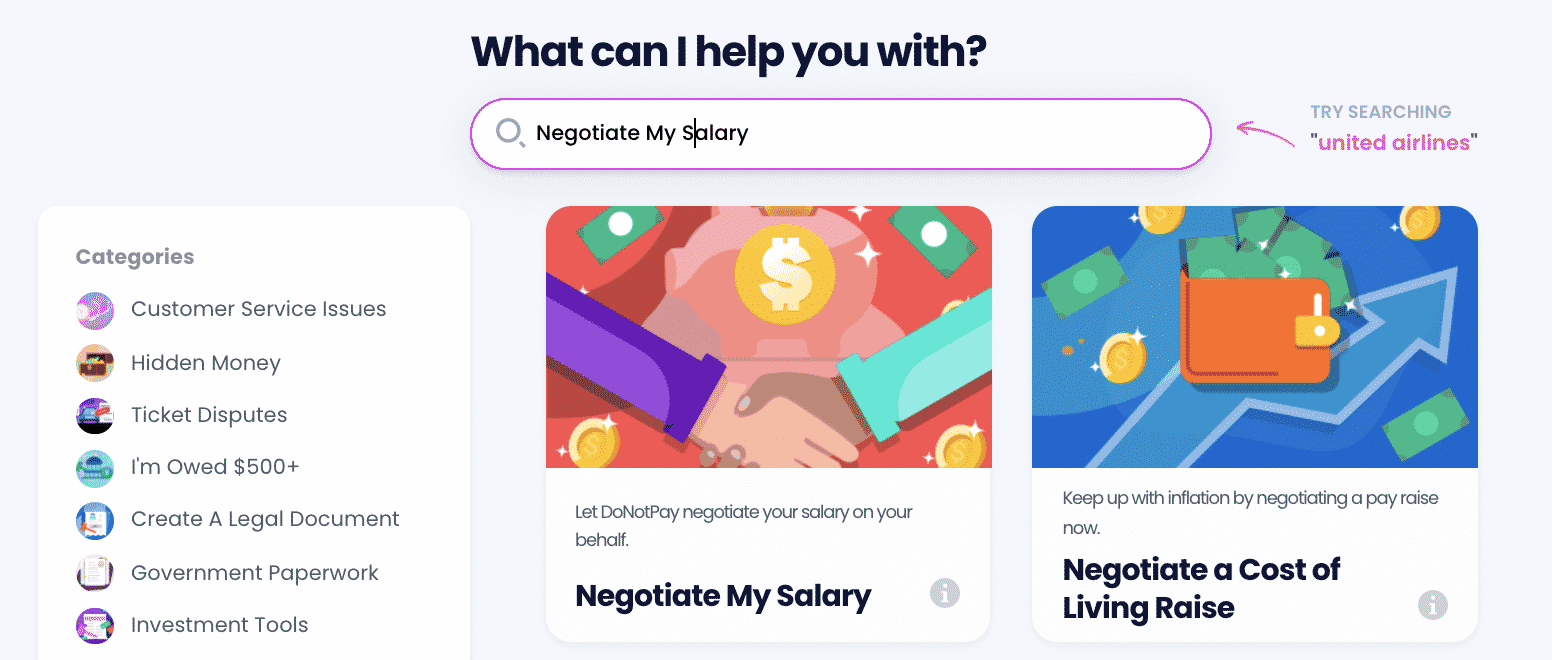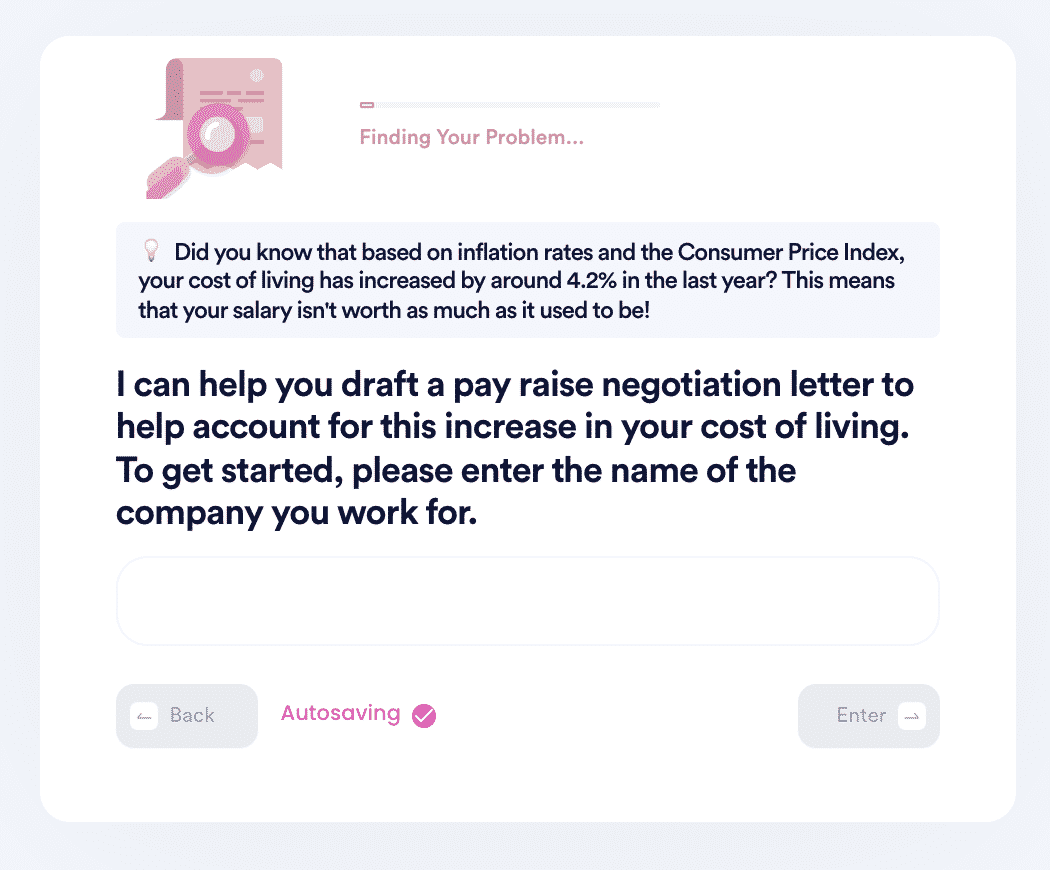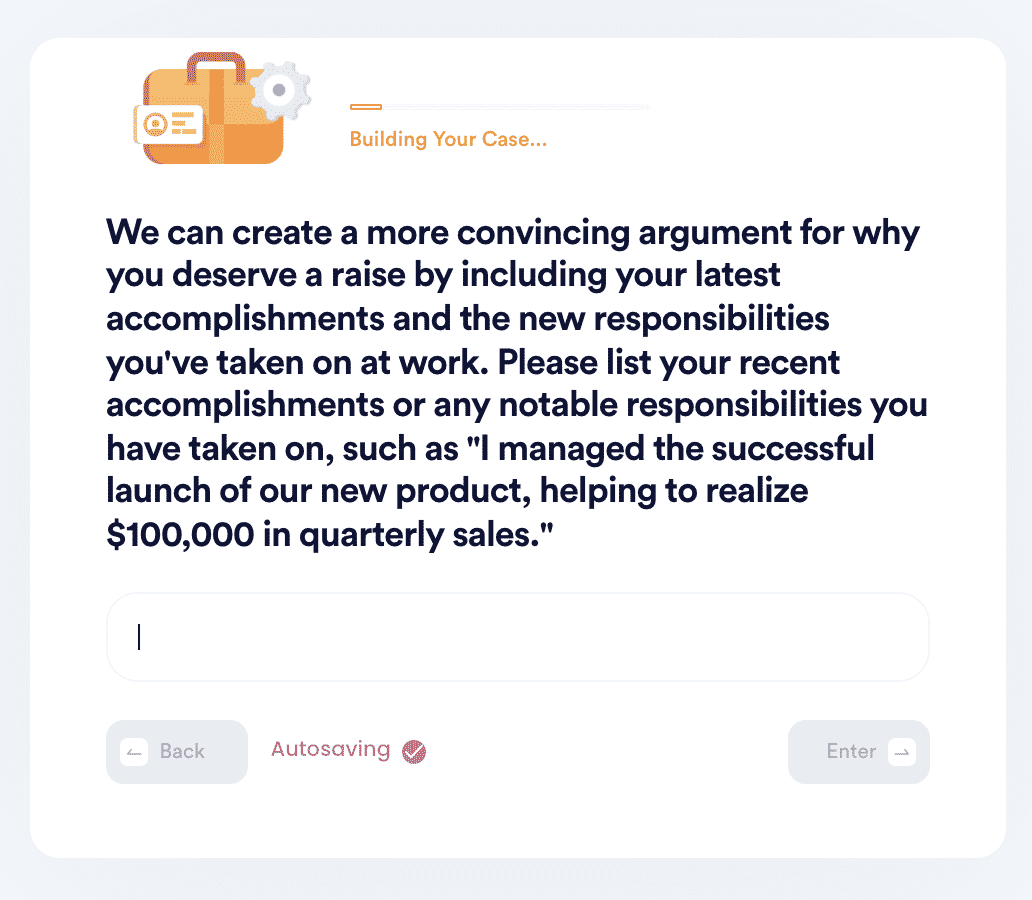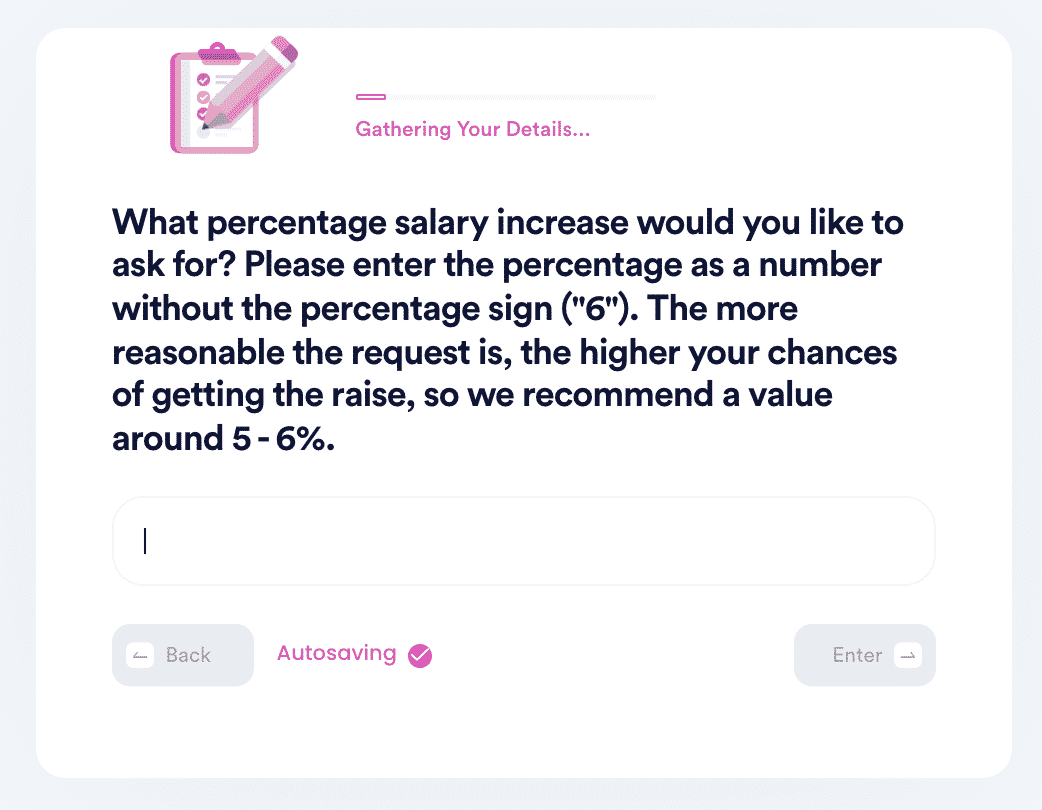How Much of a Raise Should I Ask For After 1 Year?
It has been a year since you started working for your company, and you feel that you deserve a raise. As a proactive employee, you will want to ask for a raise rather than leave it up to chance. But you are faced with a big question; "how much of a raise should I ask for after one year?" You may also wonder when to ask for it and how to go about the whole process?
Negotiating your salary increase is easier said than done. You need to research, establish your market value and probably write a negotiation email or letter to your boss since negotiating a salary increase via phone may be inconvenient or look unprofessional. Nevertheless, the process of negotiating a raise should not hold you back. DoNotPay can help you ask for a raise without a hassle.
Let's look at and how DoNotPay can help you negotiate your salary increase.
What Amount of Salary Increase Should I Ask For After One Year?
The varies widely across positions and companies. But the figure ultimately narrows down to the amount you contributed to the bottom line for the past year. An effective way to ask for a salary raise would be to present the market value rate to your employer. Investigate your position's salary trend or fair market value to have a foundation for evaluating your work's value.
You can take the following approaches to determine how much of a pay increase you should ask for.
- Review salaries of employees working in similar positions at other companies.
- Find the information in different compensation databases available on the internet.
- Talk to a salary consultant.
When Should You Ask For a Raise?
Large and medium-sized companies often hold a year-end performance review. But should you negotiate your salary during this period? Generally, the program may fail to line up with your start date such that you go into the first performance review having worked for less than a year.
If you choose to wait for your second performance review, you will have worked with the company for over a year. Therefore, the annual performance is not the best guide on when and how often to negotiate a salary raise.
You should start the discussion in advance, probably a few months before your first anniversary in the company. Know what your manager or boss expects from you and how you can help the organization but ensure you understand how the performance relates to a pay raise. You can note down the actionable items your manager has for you. This plan is among the documentation you will have when asking for a salary raise.
Here are other reasons to ask for a raise.
| Inflation | The cost of living increases every new dawn, and you won't be wrong to ask for a salary raise to cope with the challenging economic times. You should convince your employer to make them see the essence of re-evaluating your payment terms. |
| Qualifications | For the years you have worked for the company, you have acquired more skills, and thus you should take it to your advantage and ask for a salary raise to match your skills. |
| Reliability | If you are the kind of employee who works without being micro-managed, the company has trust in you and can't afford to lose you. You should take this opportunity and demand a salary raise. |
| Initiative | Your employer will not be hesitant to increase your salary to a level of your satisfaction if you are the kind of employee who presents a solution to the management on issues you noticed with the company. |
How to Negotiate a Raise on Your Own
You can negotiate a salary increase yourself by writing the pay raise request email or letter.
Your salary increase proposal should have the following information:
- Your job title, current salary, and the duration you have been in the company.
- A highlight of your achievements in the position and any changes to your original job description.
- A benchmark of your salary against the current market rate.
- The raise you want either as a percentage or salary amount and state how it brings you in line with the current market rate.
You can end the request by expressing your joy working at the company.
Next Steps for Negotiating a Raise if You Can’t Do It Yourself
Negotiating a salary and writing a raise request to your employer can be a bit overwhelming. First, you have to provide accurate figures and statistics on your market value. Secondly, you have to write a perfect salary negotiation letter to increase your chances of getting a raise while maintaining professionalism. All that can be time-consuming, tedious, and you might not know where to start. Fortunately, DoNotPay can help you craft a professional salary negotiation letter to help you get a raise.
Negotiate Your Salary With the Help of DoNotPay
You work hard and deserve a raise. Therefore, there should be no reason for you to be embarrassed about . DoNotPay will help you craft a professional salary negotiation letter easily.
Here's how to negotiate your salary using DoNotPay:
All you have to do is:
- Search “negotiate my salary” on DoNotPay.

- Enter the name of your company and the industry you work in, so we can find the right wage statistics for your role.

- Answer a series of questions regarding your qualifications and achievements, relocation expenses, and other job offers if applicable.

- Enter the new base salary you would like to request.

It's that simple. Once the information is processed, DoNotPay generates an official salary negotiation letter that you can then email or present to your employer.
DoNotPay Can Do More for You
Helping you negotiate your salary is just one of the multiple services available on DoNotPay. You can use DoNotPay to do other things, including:
- Reducing property taxes
- Making cancellations
- Fighting workplace discrimination
- Requesting chargebacks and refunds
 By
By